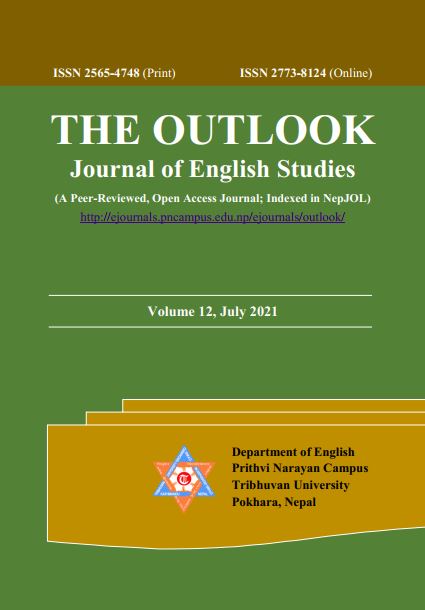Unrestrained Nature in Cummings’ “O Sweet Spontaneous” and Lohani’s “Gaia”: A Disregard to Anthropocentric Ecocide
DOI:
https://doi.org/10.3126/ojes.v12i1.39098Keywords:
Anthropocentrism, deep ecology, earth, ecocide, ecocentrism, natureAbstract
The self-centered human activities have tremendous adverse impacts on ecology at the present time, thereby turning the earth into an unwelcoming and inhospitable place for the species. However, nature responds to such ecocidal anthropocentric actions with the continuation of life as a sweet gift. In this context, this study aims at analyzing how literature undermines such anthropocentric activities and presents the earth or the nature as the mother who is very compassionate, protective, and affectionate to her children and is always accountable to them. This study also exhibits how anthropocentric activities invite ecocide and what the response of nature is. In the conflict between human-centered actions and responses of nature, the study also investigates whether nature or the earth forgets her duty. For this, the study makes a critical study of the masterpieces, “O Sweet Spontaneous” by E.E. Cummings and “Gaia” by Shreedhar Prasad Lohani. This qualitative study applies ecocritical and one of its approaches, deep ecological notions to scrutinize how these poems negate ecocide drawn by anthropocentrism. An in-depth analysis of these poems reveals that the anthropocentric philosophy is actually the main cause of ecocide. However, nature, on her part, is very spontaneous and unrestrained who always forgives the serious and notorious human actions and is dedicated to bestow ‘spring’, that is, life to all the organisms which is her major responsibility. In this respect, this study opens an avenue for people about the self-realization of their exploitation of nature and calls for creating this world a common place for all the species.
Downloads
Downloads
Published
How to Cite
Issue
Section
License
Copyright (c) 2021 Department of English, Prithvi Narayan Campus

This work is licensed under a Creative Commons Attribution-NonCommercial 4.0 International License.
This license enables reusers to distribute, remix, adapt, and build upon the material in any medium or format for noncommercial purposes only, and only so long as attribution is given to the creator.

